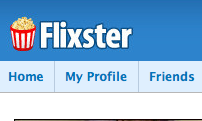Week's Best Reads - Digital Media Biz, Transmedia & Higher Ed
 Sunday, May 13, 2012 at 12:07 PM by
Sunday, May 13, 2012 at 12:07 PM by  Nick DeMartino
Nick DeMartino This post looks at recent trends in three areas that I'm tracking, the overall digital media business, the impact of the internet on higher education, and storytelling forms (transmedia). Please share, and post your comments.
THE MEDIA BUSINESS
Readers of this blog will remember my post last year when Warner Bros bought Flixster in which I argued that the studios needed to use the data generated by audiences to create relationships that move beyond their historical "wholesale" business model. Instead, we learned, Flixster was turned into a storefront for the studios digital locker project, Ultra Violet, and clumsily at that.
Now, finally, Flixster is launching "Social Movies Targeting," an initiative that crunches user activity on its sites to predict future trends and to improve targeting for advertisers, according to this interesting Media Post report.
As the web world and the finance world (hell, the entire world) focuses upon the pending Facebook IPO and the enormous wealth being created, it's interesting to understand why. One factor is the ecosystem of startup companies creating apps for the FB platform, as this thorough article by Mike Swift of the Mercury News articulates.
Gunther Sonnenfeld examines what it means to distribute and scale stories across multiple platforms in a series on his blog that you'll find very thought-provoking. I know I did, in part because he positions today's "transmedia" storytelling paradigm within the history of distribution and story formats.
Legendary investor and entrepreneur Peter Thiel teaches at Stanford. I stumbled across this summary of his lecture (by Stanford Law student Blake Masters) on "distribution" which is comprehensive and fascinating. This is dense, but may be worth the trouble if you want to understand the critical and changing role of distribution in the digital ecosystem.

Speaking of distribution, its dominance in the digital universe helps Ben Elowitz make the case for the "Chief Audience Officer" in a world where "Content is No Longer King."
As ISPs start restricting Internet band witch, this post asks, "Is Web TV's Free Ride Over?" Not if the trend towards original web programming continues to gain traction.
The rise of made-for-broadband video content also means an upsurge in M&A activity, exemplified by the acquisition of Revision3 by mainstream cable broadcaster Discovery Communications.
Two posts that look at crowd-funding trends from different perspectives: "Has Kickstarter become just a storefront?" in which the writer argues that the premiere crowd-funding site is star-struck. And "What does crowd funding mean for the VC business?" asks investor Fred Wilson, and then answers.
EDUCATION
Education is yet one more industry in the throes of revolutionary change as the web and entrepreneurial innovation upend many of the historical institutional verities.
Last week Harvard and MIT announced edX, a platform for online courses, mostly lectures. This alone is nothing new, with similar initiatives dating all the way back to the first dot-com bubble days. (Here's some perspective in a smart post from BostInno.com.)
Could online learning, along with accelerator-style education and various web-based continuing education platforms spell the end of the MBA, a cash-cow for many universities? This is a well-reasoned case for just that.
While MIT, Harvard and other prestige universities are porting their lecture content to the web, Stanford is undertaking the real revolution in education, according to an interesting Tech Crunch post, by embracing the "flipped" classroom model pioneered by Khan Academy.
This surge in web-distributed college courses will only become significant, argues this provocative post, when we "jailbreak" consumers from the full degree. Why can't accreditation occur at the course level?
In another online education move, Washington University's Law School will offer a master's degree entirely online, in partnership with a commercial company 2tor.com, reports the NY Times.
TRANSMEDIA AND STORYTELLING
Fourth Wall's interactive web series "Dirty Work" debuts with a lot of attention, and with a lot riding on it and the RIDES.tv platform (pun not intended).
Transmedia is on the rise in television, or more specifically in ad-supported television, according to this post from ad agency JWT.
StoryCode.org, the group that grew out of the NY Transmedia Meet-up, held a "story hack" a few weeks ago, stimulating a flurry of posts by the transmedia true believers (like this one from Queen Spade Creative). This Washington Post story does a nice job of contextualizing the event, and why it's ground-breaking.
Transmedia Storytelling Berlin interviews USC prof and transmedia theorist Henry Jenkins, who is now on a European tour. I would expect more as he makes his rounds.
"Prison Dancer" is a transmedia musical (and YouTube phenom) that launched back in 2007 with a video of prisoners jailed in the Phillipines dancing to Michael Jackson's Thriller. Now you can interact with a 12-part web series, as described in this extensive post from KCET.org.
"Steampunk Holmes" is a new multi-platform fiction project from a group in Minneapolis that looks like a lot of fun, and which just raised $43K on Kickstarter. HT to @randyfinch
 Discovery Communications,
Discovery Communications,  Flixster,
Flixster,  Gunther Sonnenfeld,
Gunther Sonnenfeld,  Harvard,
Harvard,  Henry Jenkins,
Henry Jenkins,  MIT,
MIT,  Prison Dancer,
Prison Dancer,  Revision3,
Revision3,  Stanford,
Stanford,  Steampunk,
Steampunk,  StoryCode.org,
StoryCode.org,  Ultra Violet in
Ultra Violet in  Hollywood,
Hollywood,  Internet,
Internet,  Media,
Media,  conferences,
conferences,  crowdfunding,
crowdfunding,  data,
data,  distribution,
distribution,  innovation,
innovation,  social-media,
social-media,  startup,
startup,  studios,
studios,  technology,
technology,  television ,
television ,  transmedia,
transmedia,  weekly
weekly  Print Article
Print Article 

